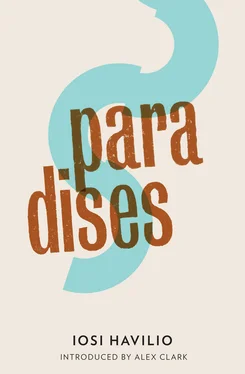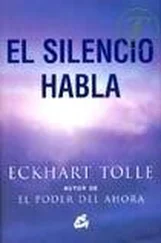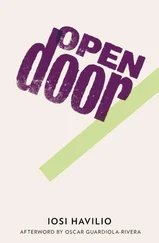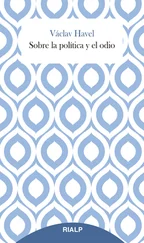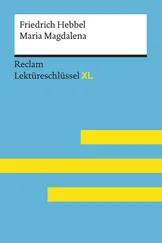Yessica tells me that Esteban is looking for me. She says it sarcastically, or jealously, I can’t tell. It takes me a while to find him, I come and go along the aisles of the reptile house until I notice the sign for the nursery and everything becomes clear. The theft of the iguana becomes my only thought. Why didn’t it occur to me sooner, it’s so obvious, sooner or later this was bound to happen. I feel stupid, I don’t even have an alibi. I knock at the door, there’s no answer, I stick my head in, Esteban is on the other side of the glass among the incubators wearing a surgical mask. I can make out Uana’s brothers and sisters in the distance, by now he must be crawling about the flat in search of a new hiding place to escape Herbert and Simón’s fanaticism. Esteban comes round to my side, removes the mask, greets me with a kiss on the cheek. We have a problem, he says. I stay silent. We’ve detected a virus, three turtles have died, we’re going to have to transfer them urgently for a general disinfection. I’m going to need you, he says and breathes in. But he isn’t finished. Oh, and another thing, he says, walking out. There’s an iguana missing, did you notice? How strange, I say and he nods twice with an old-womanish expression.
At the exit, Iris is waiting for me. She raises her hand, she beckons me, she wants us to walk back together. The same subject as the afternoon, she adds details about the illness and her father’s deterioration, they sent her a terrible photo. That’s what she says, Terrible. I come out with a stupid phrase of consolation, Well, I’m sure it will do him good to see you. A few blocks in silence, we say goodbye at a corner. We must have a leaving do, I say. I don’t like goodbyes, she hurries to answer.
I spend half the night hunting lice with a fine comb. Simón’s hair is soaked in cider vinegar. It fattens them up and they burst more easily, Sonia’s words. Well-developed adult lice, young lice that are difficult to trap, nits by the dozen, alive and dead, which I’m lining up on a sheet of newspaper soaked in alcohol. I wonder whether they organise themselves in some way, whether there will be parts of the head that are more attractive than others, whether there’s any kind of hierarchy or government. Whether they’d be trainable, even sacred to some past or future civilisation. To begin with, I kill them without hesitation, squishing them between my fingertips, making them explode nail against nail, tst, tst. But with repetition, a certain interest is awoken in me and I start studying their behaviour. I try to mutilate them, keeping them alive, so that they can’t escape from my sight. It’s not easy. I follow their final steps attentively, guiding them to meet other cripples. They find themselves forced to pass through a labyrinth built of the corpses of their fellows. What must it be like to experience all this, their own agony and the death of the rest, with no awareness of pain, tragedy or killing. Lice, fleas, bedbugs. Life forms that, in planetary terms, are perfectly equatable to ours. When I finally finish, at least I think I’ve finished, I have in front of me a real cemetery of tiny bugs. A scaled-down extermination camp. The hunt leaves me as exhausted as I am excited. Sleepless, I clean the bathroom, I run a cloth over the floor, I soak all the socks I can find in the washbowl, most of them missing a partner, also my three pairs of knickers, including the ones I’m wearing. I go to bed at half three, naked, annoyed at I don’t know what. Eyes closed, a row of morphine phials appears to me, floating against a black background like dancers in the darkness.
Excursion to Open Door. It’s Eloísa’s idea, she wants to go and see what it’s like these days, she hasn’t been back since her house and the shop were demolished. She suggests the two of us go alone, but I add Iris and Simón to the group, which she eventually accepts with a reluctant: If there’s no other way. In fact, inviting Iris is a way to give her the send-off she doesn’t want. It takes a couple of chats to convince her: A day in the country, I tell her, to clear your head. She answers sarcastically but finally agrees.
We arrange to meet at Once station at half ten in the morning. Eloísa arrives forty-five minutes late. Simón and I kill time with a hot dog each for breakfast, Iris watches us in disgust. As we wait, I realise I’m making the assumption that they’ve seen each other before, the time Eloísa came to get me at the zoo. I was never able to tell whether that was the case or not, but anyway, the thought of an encounter between the two intrigues and excites me. But when Eloísa arrives, our hurry not to miss the train allows no time for introductions, everything happens at a run.
We sit on a group of seats facing each other and after Eloísa’s excuses, saying that she sent me about six messages even though I didn’t receive one, and Iris’s monosyllabic complaints, we enter a long tunnel that silences us for a while. We each retreat into our own little world. Eloísa, who has only slept for two hours, covers her hangover with a pair of Carey sunglasses, disproportionately wide for her face; Iris looks out of the darkened window, full of distrust; Simón is too lively, kicking my knees to mark his boredom. I distract myself comparing noses and ears. Pointed, twisted, flattened, piggy, like magpies, like plug sockets, porous and smooth, mousy, funny, ridiculous, endless. Ears with noses.
At Liniers, a white-haired man gets on, blue shirt, polka-dot tie and braces. He’s dragging a little trolley holding a black leather case. He sits in the middle of the carriage, two metres from where we’re sitting. The man unfolds a stool and takes out a shiny, red accordion, which he places on his legs on top of a flannel. Before playing, he regales us with a short brotherly speech. He talks about our mission in the world, our duty to love our neighbours and God equally: He who loves one and not the other is at fault, he says, and searches for the eyes of the other passengers, who in most cases avert their gazes. When he falls silent, the music comes: a chamamé , a tango and a milonga . Eloísa becomes enthusiastic, as does Simón; Iris watches with eyes like an extraterrestrial’s. Before leaving, the man recommends drinking a cup of chamomile tea every night and a glass of lemon juice in the morning so as not to die trying. He says: So’s not to die trying. Then he passes the hat. I have a few coins for which he thanks me too effusively, so that the others can’t fail to hear. Safe journey, bless you.
Change at Moreno. We get on the new train as it’s starting to move. Another hour, which we use to doze. A parade of beggars and hawkers. We arrive in Luján at around two, too hungry to walk round, we make do with a little bar opposite the station. We have escalopes and chips for lunch, today’s special, the only option. Eloísa starts interrogating Iris. About her country, the people, how they dress, what they’re like, who’s the most famous Romanian, what’s her favourite dish. Frigarui , says Iris and Eloísa takes three attempts to say it properly. Iris explains that they’re like long hamburgers that sometimes have vegetables in them and which are eaten with bread and yoghurt. Eloísa puts two fingers in her mouth, as if to vomit. It’s delicious, Iris retorts, almost offended. I eat quickly, and as I listen to them talk I begin to realise that the situation makes me slightly uncomfortable. I cross the small plaza with Simón so that he can climb on a strange wooden structure, I can’t tell whether it’s intended for exercise or for children to play on. This is the very spot where I stood waiting for Jaime one of the first times I came. Almost unchanged, except that on the corner, instead of the ice-cream shop, there’s a veterinary surgery that looks as friendly as a dog baring its teeth.
Читать дальше
